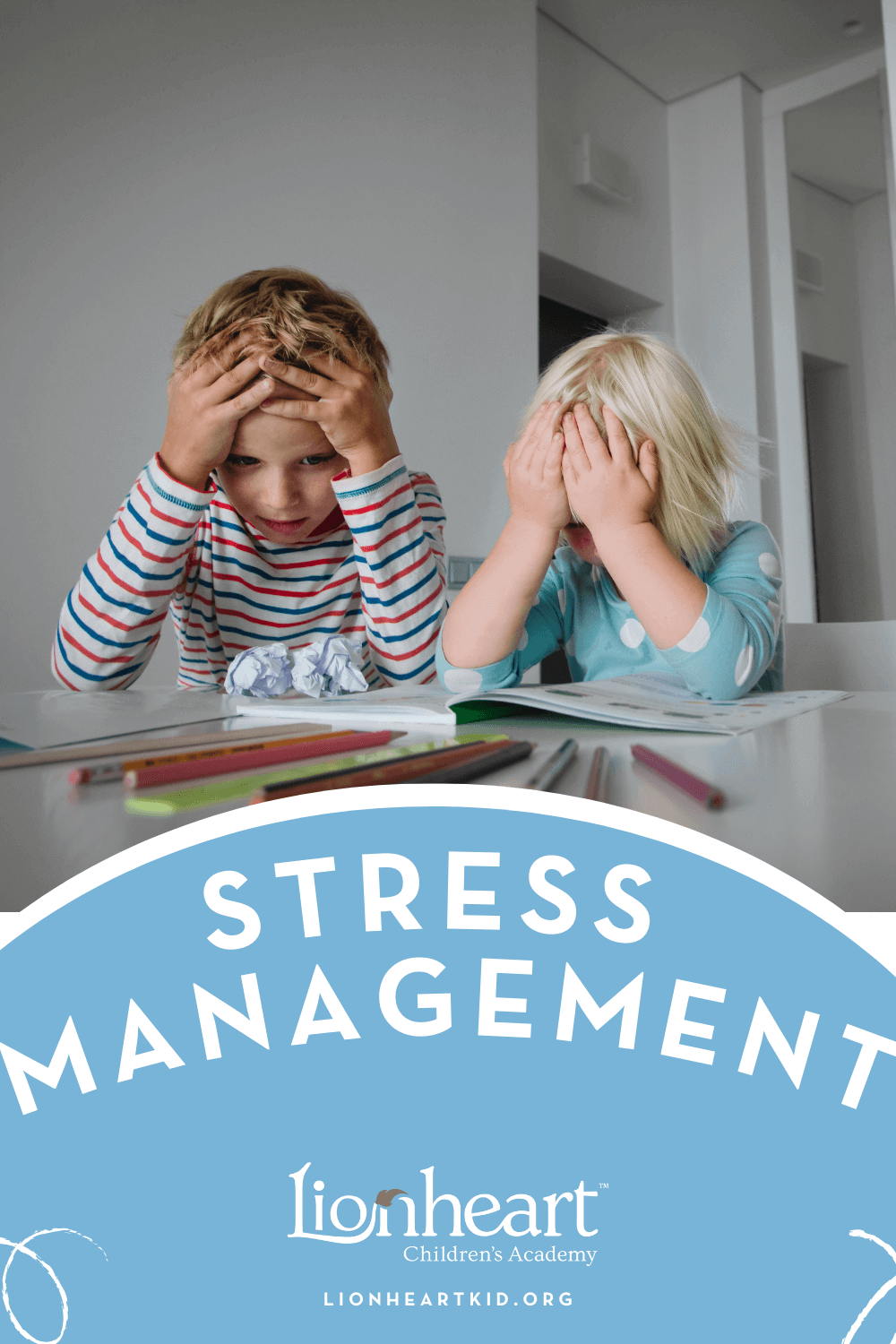Ways to Help Your Child Manage Stress
Lionheart Children’s Academy Offers Stress Management Tips
As a parent, you never want to see your child experience any sort of distress. Childhood should be a stage of life filled with learning, fun, and carefree activities. However, some level of stress is not only unavoidable, but it is also completely normal. It is crucial for children to learn how to manage stress from an early age so that they are better prepared for the more intense stressors of adulthood. You can be a major source of support for your child and help them to learn how to navigate these feelings. If you are interested in learning how to properly help your child manage psychological stress in a healthy way, Lionheart Children’s Academy has tips to help parents in Texas teach productive stress management tactics to their children. Continue reading to learn more, and don’t hesitate to reach out if you would like more information.
What Are the Sources of Psychological Stress in Children?
Though you may not find some situations as stressful as your child does, even the most minor life changes can be extremely tough on children. Sources of stress change over time and expand to include deeper issues. Common sources of stress in children include the following, among others:
- Young Children: Major stressors for toddlers and younger children are usually centered around tension in the home. Any life change can bring a wide range of emotions that your child may not be prepared to deal with. Major life events, including conflicts between parents or siblings, a stepparent moving into the household, or the birth of a new sibling, are typically stressful on children.
- Adolescents: Your child’s teenage years will inevitably involve a variety of stressful situations as they learn how to navigate the world on their own. Sources of stress during this time are more likely to include situations outside the home, including school performance, fitting in with peers, and romantic relationships. They may also be more affected by major world issues that they see in the news, including gun violence, climate change, human rights issues, and more.
How Do Children Express Psychological Stress?
Every child is different and has unique ways of both expressing stress and navigating stressful situations. Children hesitate to reach out and initiate a conversation about what they are dealing with. They may not even be able to pinpoint what the issue is on their own. It is important to stay tuned in to your child’s life and try to recognize the ways they express themselves when they are having a tough time. The following are some of the most common signs of stress in children:
- Misplaced anger
- Irritability
- Sudden changes in behavior
- Forgetting or neglecting responsibilities
- Having trouble sleeping
- Sudden changes in appetite
- Complaints of stomachaches or headaches
Tips to Help Your Child Manage Psychological Stress
Even though parents may not understand why children are stressed, it is important to try to put yourself back in the mindset of your own childhood. Seemingly minor issues carried much more weight back then. We can’t completely protect our children from experiencing stress, but we can provide support and help them cope with everyday issues. Children often want their parents to reach out and show that they care, even if they don’t explicitly ask for help. However, it may be challenging to know the most productive way to help. Keeping in mind that every child has different needs, consider the following ideas to help your child deal with stress:
- Let Them Know You’ve Noticed A Change: Children want to feel understood and cared for. By casually pointing out that you’ve noticed a change in their behavior, you can show them that you’re paying attention and want them to feel better. Try to avoid using an accusatory tone. Reassure them that you are not upset with their behavior; rather, you are interested in hearing about what has been going on. It is okay to ask them to share what’s on their mind, but you should avoid further pushing the issue if they seem closed off.
- Listen Attentively: If they want to open up about their problems, let them vent. Listen attentively and stay calm throughout the conversation. This is your chance to show them that you are genuinely interested and care about what is going on. Try not to interject with judgment, blame, or any sort of lecture before they have finished telling you the entire story. Encourage them to take their time sharing the entire story.
- Use Terms They’ll Understand: Your child may not completely understand what they are feeling. If they seem to have misplaced anger or irritability, try to avoid shaming them for this. Instead, use an understanding tone and express that it makes sense why they were upset about the situation. Try to get to the bottom of why they were upset if you can, and show them that you care.
- Avoid Overscheduling: If your child is generally overwhelmed by their commitments, try to limit as many external factors as you can. Decreasing the amount of after-school activities they have to deal with at one time is an excellent place to start. By spending less time focusing on overwhelming activities, they’ll have more mental energy to allocate toward navigating their stressors.
- Brainstorm Problem-Solving Tactics: If your child seems open to it, help them think of ways to deal with the stress. Brainstorm with them, and express that their ideas are both valid and welcome. These conversations will help them build their confidence and feel ready to take on the real world.
- Have Patience: If your child is taking longer to open up about their problems than you would like them to, do not shame them. Instead, encourage them to take their time. Have patience with them throughout the process. Avoid prying about the issue, but continue to show that you are there for them whenever they are ready to share. You cannot fix every issue that your child faces through life. The best thing you can do is be there for them as a shoulder to cry on when they want and need your help.
Encourage Your Child to Prioritize Their Health for Stress Management
Regardless of what is going on in your child’s life, it is important to encourage them to take care of themselves and help them prioritize their health. This becomes even more important when they are in the middle of a stressful situation. You can help them keep their stress in check and create a more positive mindset by encouraging the following strategies:
- Exercising regularly
- Getting enough sleep
- Making time for enjoyable activities
- Spending time outside
- Journaling about gratitude
- Confiding in trusted friends
Contact Lionheart Children’s Academy for More Information
No matter which stresses management tactic you choose to utilize, never gives up on your child. Be there for them in any way you can. You are their most important source of support, and simply showing them that you care is often the best thing you can do. There is no shame in reaching out to a professional for more tips and advice on how to navigate these situations. Lionheart Children’s Academy is always here to help. Our professionals would be happy to help you navigate your child’s unique situation and figure out the most productive stress management tactics for them. By modeling healthy coping in your own life and teaching them how to get through life’s moments, you’ll help them build the confidence they need to tackle adulthood. If you would like to learn more about managing your child’s psychological stress, reach out to our team today for more information.


